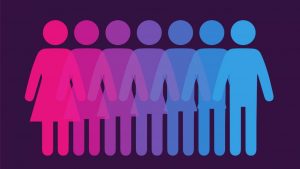“You can’t just stick Alan Turing on your Powerpoint, and be done with it”
Creating a Truly LGBTQ+ Inclusive Curriculum in 2022
By Aled Hanson, trainee teacher in PGCE Economics and Business Education
At the beginning of March 2022, Florida’s Senate passed its hugely controversial ‘don’t say Gay’ bill, which bans teachers from discussing sexual orientation and gender identity in primary schools. The bill gives parents the power to sue teachers if they feel an educator has broken the law and includes counselling and support services in its remit. The passing of the bill has caused condemnation from educators across the world.
For teachers in the UK, the bill is all too familiar. Margret Thatcher’s ‘Section 28’ which prohibited the ‘promotion of homosexuality’ by schools, was only repealed in 2003. Before the legislation was repealed, LGBTQ inclusive education simply didn’t, in fact, couldn’t, exist in schools in the UK. In many ways, this is a form of what the sociologist of education, Michael Young called ‘Powerful Knowledge’ in his 2013 paper. That is, knowledge that provides explanations of the world and new ways of thinking. It can provide students with a language for engaging in political and moral debates.
So, over the past 20 years, how far have we come? What does it mean to create a truly LGBT inclusive curriculum in 2022? And how can we ensure our teaching is meaningfully LGBT inclusive in the classroom, equipping students with the powerful knowledge required to navigate their own identity?
These are all questions I set out to answer this term, as I completed my Inclusive Educational Practice assignment as part of my PGCE. I met with various staff at the school, who have been working to achieve the ‘Rainbow Flag’ award, a national award which recognises schools which work to create a truly LGBTQ+ inclusive learning environment. They told me that key to a truly LGBT inclusive curriculum, is not just a clear and well thought out PSHE programme, but meaningful representation in lessons and wider school life.

So what does this look like, I asked? The central response was this: “You can’t just stick Alan Turing in a PowerPoint, and be done with it”.
This kind of work shouldn’t be a ‘gimmick’ or a ‘tick box’, completed in one lesson during Pride Month, and then put back away, it should be a constant process for teachers. There are endless opportunities to integrate this with ‘powerful knowledge’ to give students a wider picture of the world around them too. For example, when giving students an exercise on consumers – can this be inclusive? Can you include two Dads shopping for a cot for their daughter? Or use gender neutral pronouns for an example in an exam question?
In a recent lesson, on market segmentation, I spent time with students looking at the ‘Pink Pound’, which represents the spending power of LGBTQ+ consumers. When I asked students why they thought this might be called the pink pound, the room went silent with curiosity. This demonstrates this kind of work is not just important in supporting LGBT students but creating engagement and fostering powerful knowledge for all students in the classroom.
The tabloid moral panic over inclusive children’s picture books such as ‘Jenny Lives with Eric and Martin’ was one of the central controversies in education that lead to Thatcher’s Section 28 being introduced in 1988. This shows the power of books in forming our culture and demonstrates the vital role a school library plays in creating a truly LGBTQ inclusive education. This hit me recently when listening to trans author Juno Dawson on the BBC’s Turn Up for the Book’s Podcast. Juno’s book ‘This Book is Gay’ is a best-selling nonfiction guide to LGBT life designed for teens. She explains on the podcast:
“One thing I’m constantly told, is my books get nicked from libraries… particularly ‘This Book is Gay’…constantly being stolen… and that tells me, that there are young LGBT people who really need those books. And what’s lovely, is the librarians never mind…they’re like clearly that kid needed the book more than we did.”
It’s a striking quote which tells us just how important an inclusive school library is. But this work doesn’t stop at nonfiction. Seeing yourself reflected in culture is vital in understanding where we fit in the world and unlocking ‘powerful knowledge’ about our own identities. Whilst most popular culture is still catching up (can you remember the last time you saw meaningful LGBT inclusion in a Hollywood blockbuster?), there is a wealth of LGBT inclusive literature designed for teens and young people. From the ‘Tik Tok’ sensation ‘They Both Die at the End’, Madeline Miller’s Song of Achilles, Alice Oseman’s Heartstopper, to Becky Albertalli’s global smash hit ‘Simon vs the Homo sapiens Agenda’, no school library is complete without truly inclusive and well stocked shelves. I briefly spent some time looking through my school’s library and it was packed full of a wide range of stories, diverse voices, and authors. This is what true LGBT inclusion looks like.
LGBT inclusion is a constantly changing and evolving subject. It encompasses everything from the school library, PSHE, staff training, putting pronouns in email bios, disciplinary strategies for bullying, counselling, school groups and so on and so on..
And there’s no perfect approach. Attitudes to gender and sexuality are constantly changing and fluid. As teachers and practitioners, we will likely make mistakes, and get things wrong. But it is important in the shadow of events like Florida’s ‘don’t say gay’ bill, that we carry on trying. Because there are young people in our schools who this work will mean the world to. And we can’t let them down.
Aled Hanson, PGCE Economics and Business Education, University of Manchester. Link to Podcast: https://www.bbc.co.uk/programmes/p0bkyfqc
Find out more about the Rainbow Flag Award: https://www.rainbowflagaward.co.uk/
Advice on supporting LGBT young people: https://www.stonewall.org.uk/resources/introduction-supporting-lgbtq-children-and-young-people




0 Comments